Is It Safe to Wear Essential Oils
Curious about the world of essential oils and their benefits?
In this article, we will explore what essential oils are, how they are used, and the different methods of application.
We will also address the safety concerns surrounding wearing essential oils for skin, as well as the potential risks and benefits.
Discover the power of essential oils, learn about the safest essential oils to wear, and get tips on how to safely incorporate them into your daily routine.
Key Takeaways:
What Are Essential Oils?
Essential oils are concentrated plant extracts that capture the natural aroma and flavor of the plant. These oils are derived from various plant parts through processes like distillation or cold pressing, retaining the essence of the plant’s chemical composition.
One of the key aspects of essential oils is their versatility. Extracted from flowers, leaves, stems, roots, or fruits, these oils are known for their potent therapeutic properties. The extraction process involves carefully selecting the plant material, followed by methods such as steam distillation or solvent extraction. Essential oils contain bioactive compounds that can provide a range of health benefits, from relaxation and stress relief to immune system support and skincare. Research continues to explore the effectiveness of essential oils in promoting overall well-being.
How Are Essential Oils Used?
Essential oils can be used through inhalation or topical application to benefit both the respiratory system and the skin.
Inhalation involves breathing in the aromatic molecules of the oils, which can have a direct impact on the olfactory system, influencing mood and promoting relaxation.
On the other hand, topical application allows the oils to be absorbed through the skin, where they can exert their therapeutic effects locally.
Through these methods, essential oils can help alleviate respiratory issues such as congestion and coughs when inhaled, while also nourishing and rejuvenating the skin when applied topically.
What Are the Different Methods of Using Essential Oils?
There are several methods to use essential oils, including diffusion, dilution with carrier oils, and direct inhalation. These methods cater to individuals with respiratory conditions or skin sensitivities, ensuring safe and effective utilization.
When diffusing essential oils, it’s important to consider the size of the room and the strength of the oil. Most diffusers require only a few drops of oil mixed with water to create a fragrant mist that can be inhaled. Dilution techniques involve mixing essential oils with carrier oils such as coconut or almond oil to reduce the potency of the oil for safe application on the skin. Understanding the right concentration levels based on the individual’s sensitivity and the desired therapeutic effect is crucial for preventing adverse reactions.
Is It Safe to Wear Essential Oils?
While essential oils offer many benefits, it is essential to consider the safety aspects, especially regarding children and potential risks associated with toxic compounds. Following safety guidelines is crucial for safe usage.
Children are particularly vulnerable to the potent effects of essential oils due to their smaller size and developing systems. It is crucial to always dilute oils before applying them to children’s skin to prevent potential irritation or adverse reactions. Some oils, such as wintergreen or eucalyptus, can be especially harmful if ingested and should be kept out of reach. Toxicity concerns arise when oils are used incorrectly or excessively, leading to symptoms like nausea, headaches, or skin irritation. Adhering to proper dilution ratios and ensuring proper ventilation during use are key to reducing these risks.
What Are the Risks of Wearing Essential Oils?
Wearing essential oils can pose risks such as adverse reactions, allergic responses, or unwanted side effects. It’s important to be aware of these risks and know how to respond, including contacting poison control if needed.
Adverse reactions to wearing essential oils may vary from mild skin irritation to more severe symptoms like difficulty breathing or dizziness. Allergic responses could manifest as rashes, itching, or swelling. Some people may experience side effects such as headaches or nausea.
If you encounter any of these symptoms, it’s crucial to remove the oil immediately, wash the affected area thoroughly, and avoid further contact. In case of respiratory distress or severe reactions, seek medical help without delay. Keep note of the oil used for reference in such situations.
What Are the Benefits of Wearing Essential Oils?
Wearing essential oils can offer various benefits, including aromatherapy benefits for mood management, emotional well-being, and potential alleviation of skin irritations. Understanding these benefits enhances the overall experience.
Aromatherapy, through the inhalation or topical application of essential oils, can positively impact one’s emotions, promoting relaxation, reducing stress, and boosting mental clarity. The olfactory system directly communicates with the brain’s emotional center, eliciting responses that can uplift spirits or calm anxieties. Certain essential oils possess antibacterial and anti-inflammatory properties, making them effective in combating skin issues like acne, eczema, or dryness, promoting a clearer, healthier complexion.
Aromatherapy Benefits
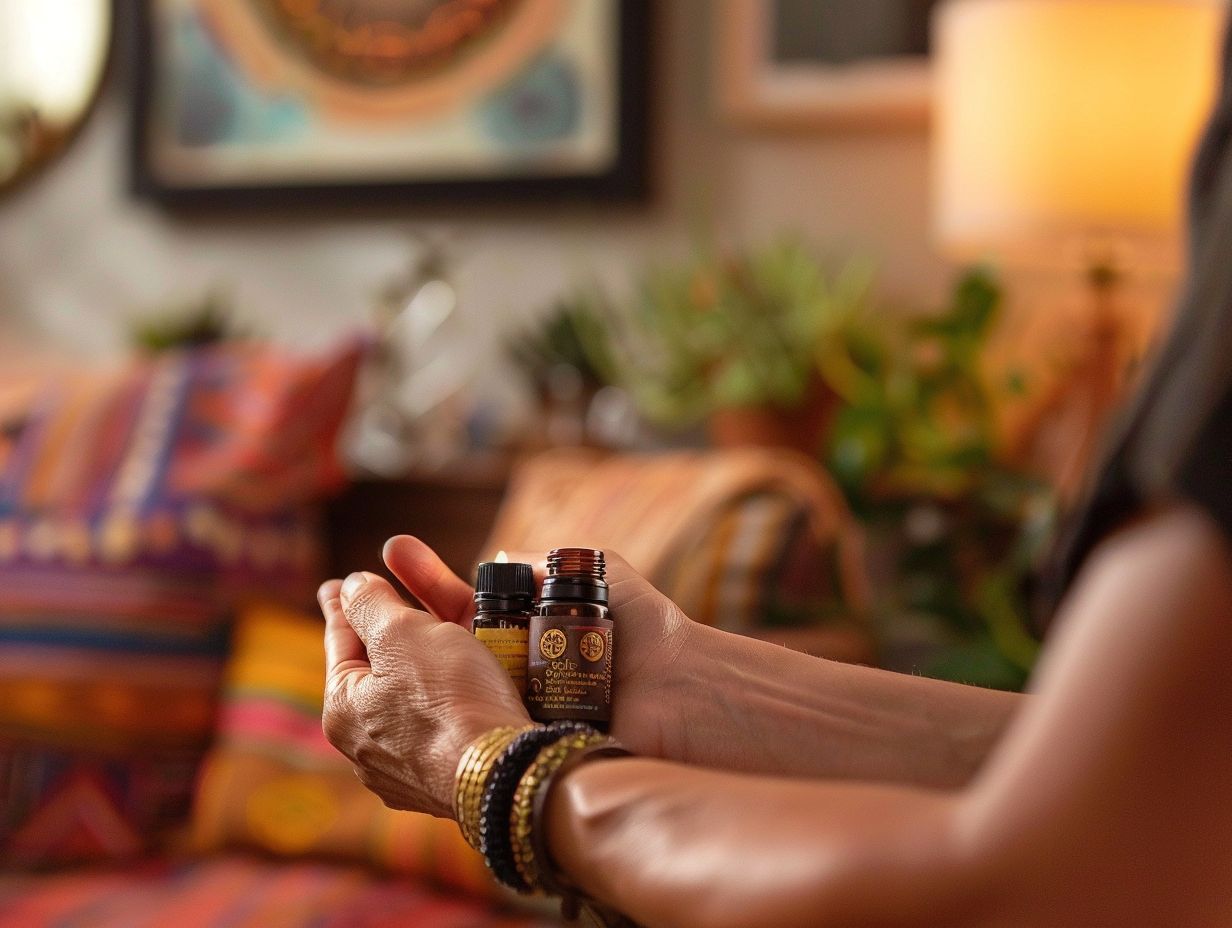
One of the remarkable advantages of using aromatherapy for personalized health is its ability to address specific concerns of individuals. Each essential oil has unique properties that can target various issues ranging from stress relief to mental clarity.
By choosing the right combination of essential oils, individuals can create their own tailored solutions to promote well-being. Whether it’s lavender for relaxation or peppermint for an energy boost, the versatility of aromatherapy allows for safe essential oils on skin personalized experiences.
When these essential oils are diffused, they not only create a pleasant scent but also have a direct impact on the respiratory system, helping to alleviate congestion and promote easier breathing. This inhalation method can be beneficial for those looking to improve their respiratory health naturally.
Skin Benefits
Wearing essential oils for skin benefits involves topical application, which can help address issues like dryness, irritations, or uneven skin tone. Precautions like patch testing are vital to prevent adverse reactions.
Topical application of essential oils is advantageous as it allows the active compounds to directly interact with the skin, promoting quicker absorption and targeting specific concerns effectively. The natural properties of essential oils, such as anti-inflammatory and antimicrobial effects, can assist in soothing redness, calming irritations, and combating acne.
Additionally,
- essential oils can rejuvenate the skin, improving elasticity and overall appearance.
When using essential oils topically, it’s crucial to dilute them properly to avoid skin sensitivities and adhere to safe guidelines to prevent adverse reactions, especially in cases of photosensitivity.
Emotional Benefits
The emotional benefits of wearing essential oils extend to mood management and individual responses, as these oils can positively influence feelings, stress levels, and overall emotional well-being.
Essential oils are known for their ability to interact with the limbic system, the part of the brain that controls emotions. When inhaled or applied, non-toxic essential oils can trigger emotional responses by stimulating the limbic system, promoting feelings of relaxation, calmness, or even invigoration based on the specific oil and individual preferences.
Each person may have a unique reaction to different essential oil scents, making the experience highly personalized. Some may find lavender oil soothing and anxiety-reducing, while others might feel more uplifted by the energizing aroma of citrus oils.
By integrating essential oils into daily routines, individuals can tap into the power of aromatherapy to enhance their emotional well-being, creating a tailored experience that caters to their specific emotional needs.
Which Essential Oils Are Safe to Wear?
Certain essential oils like lavender, peppermint, lemon, tea tree, and frankincense are generally considered safe for wearing due to their mild nature and lower risk of adverse reactions. These oils offer a blend of safety and efficacy.
Among these, lavender oil is well-known for its calming and soothing properties, often used to reduce stress and promote relaxation. Similarly, peppermint oil is popular for its invigorating scent, which can help alleviate headaches and boost energy levels. Lemon oil is valued for its refreshing aroma and potential to enhance mood and mental clarity.
- Tea tree oil, with its antimicrobial properties, is often used for skincare to treat acne and soothe skin irritations. Lastly, frankincense oil is praised for its ability to promote feelings of peace and well-being, making it a popular choice for meditation and spiritual practices.
Lavender Essential Oil
Lavender essential oil is a versatile option for wearing, known for its calming properties and skin-friendly nature. Conducting a skin patch test and proper dilution is recommended, especially for individuals with respiratory conditions.
When lavender essential oil is applied topically, its calming aroma can help alleviate stress and anxiety, promoting relaxation. Its gentle nature makes it suitable for a wide range of skin types, including sensitive skin. For those with respiratory issues, it’s crucial to ensure proper ventilation when using the oil to prevent potential triggering of symptoms. Incorporating lavender essential oil into a bedtime routine can aid in improving sleep quality and overall well-being.
Peppermint Essential Oil
Peppermint essential oil offers a refreshing scent for wearing, with benefits like improved focus and respiratory support. Proper dilution or concentration adjustment is crucial, especially when used around children.
One of the advantages of peppermint essential oil is its invigorating qualities that can uplift the mood and boost alertness when applied topically. The cooling sensation it provides can be especially beneficial for respiratory health, helping to clear congestion and ease breathing. When considering using peppermint oil around children, it is essential to dilute it properly to prevent any adverse reactions due to its potent nature.
Its stimulating properties can be a great aid in increasing mental clarity and focus, making it a popular choice for enhancing productivity and combating mental fatigue. It is important to note that higher concentrations may be too intense for younger individuals, so always exercise caution and moderation, particularly in such scenarios.
Lemon Essential Oil
Lemon essential oil is known for its brightening effects on mood and skin, but caution must be exercised due to its photosensitizing properties that can lead to skin burns. Understanding its benefits and risks is essential for safe usage.
One of the key benefits of lemon essential oil is its mood-enhancing properties, which can help uplift your spirits and promote a sense of positivity.
When applied topically, it is also known to have skin-brightening and astringent properties, making it a popular choice in skincare routines.
It is crucial to remember that lemon essential oil can make your skin more sensitive to sunlight, increasing the risk of using essential oils every day and skin irritation.
Therefore, it is important to dilute the oil properly with a carrier oil and perform a patch test before using it extensively on your skin.
Tea Tree Essential Oil
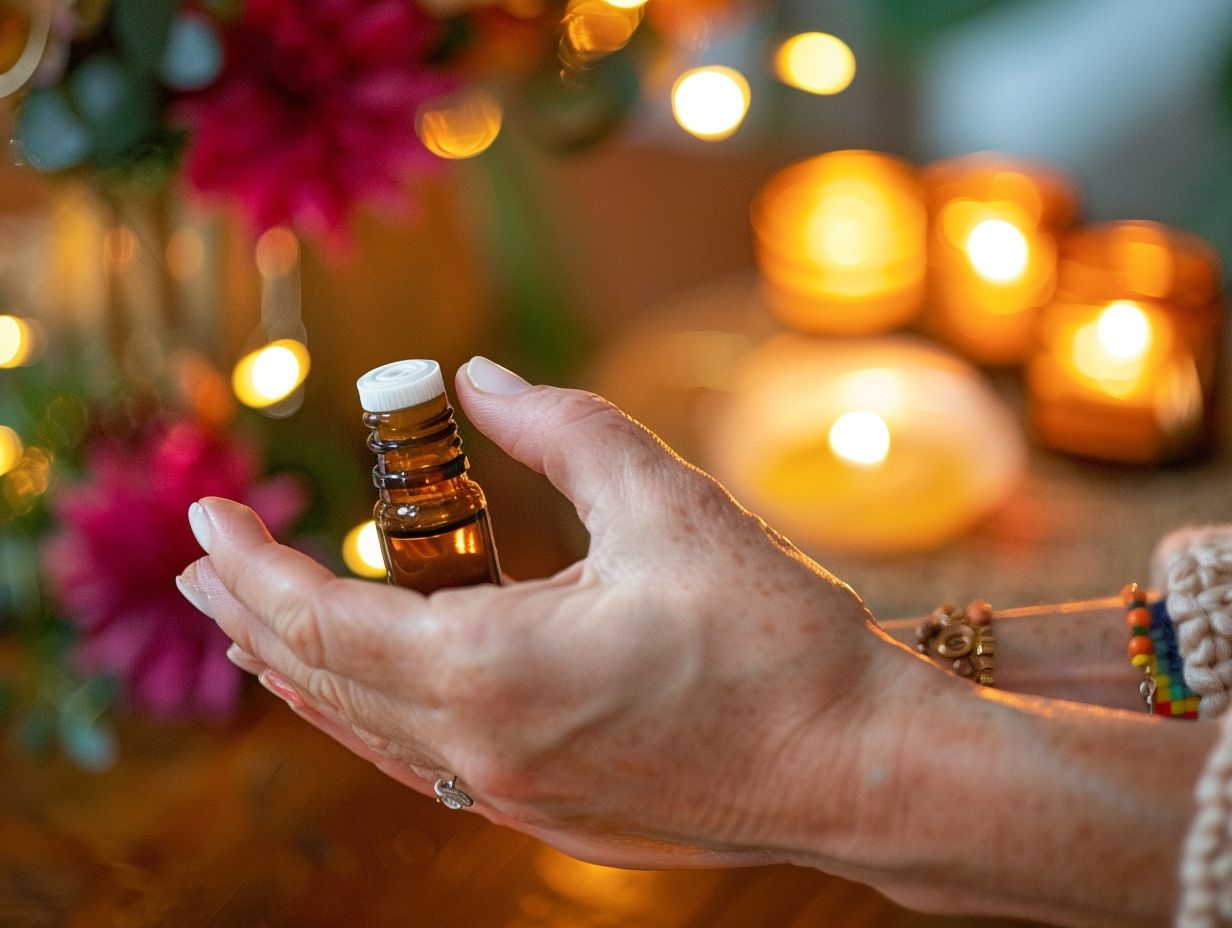
When used appropriately, tea tree essential oil can be a powerful tool in skincare routines. Its natural antiseptic properties are effective in combating bacteria, viruses, and fungi, making it ideal for treating skin conditions such as acne, eczema, and minor cuts.
The oil’s anti-inflammatory qualities can help reduce redness and swelling, promoting overall skin health. To ensure safety, diluting the oil with a carrier oil like coconut or jojoba is crucial to prevent skin irritation or allergic reactions. Learn more about doterra essential oils safety.
It is important to note that in cases of severe skin reactions or allergic responses, seeking emergency care is essential. By incorporating tea tree essential oil into your skincare routine with care and attention, you can harness its numerous benefits for healthy, glowing skin.
Frankincense Essential Oil
Frankincense essential oil is valued for its respiratory support and calming properties, offering benefits for individuals with respiratory conditions. Understanding individual reactions to this oil is crucial for personalized usage.
In terms of utilizing frankincense essential oil for its respiratory benefits, it can be beneficial for easing breathing difficulties and promoting overall respiratory wellness. The oil’s calming effects can also aid in reducing stress and anxiety, providing a sense of relaxation and emotional balance. It’s important to note that reactions to essential oils can vary from person to person, highlighting the significance of individualized responses and adjusting usage accordingly.
How to Safely Wear Essential Oils?
To safely wear essential oils, it is recommended to dilute them with carrier oils, conduct patch tests on the skin for sensitivities, use diffusers for inhalation, and ensure proper ventilation in the area for optimal dispersion.
When diluting essential oils with carrier oils, a commonly used ratio is 1-2% of essential oil to carrier oil to prevent skin irritation.
For patch testing, apply a small amount of the diluted oil on a small area of skin and observe for any adverse reactions over 24 hours. Is using essential oils in a diffuser safe for your health?
When using diffusers, make sure to follow the manufacturer’s guidelines on the amount of oil to be used and the duration of diffusion.
Proper ventilation helps prevent the buildup of strong aromas, which can be overwhelming in enclosed spaces.
Dilute with Carrier Oil
Diluting essential oils with carrier oils is essential to minimize concentration levels and potential risks, especially when using oils around children. Proper dilution ensures safe and effective application.
In terms of diluting essential oils, the general rule of thumb is to mix 1-3 drops of essential oil with every teaspoon of carrier oil. This ratio helps ensure that the essential oil is properly dispersed and doesn’t cause any skin irritation.
Essential oils are highly concentrated and can be too harsh to apply directly on the skin. In fact, applying undiluted essential oils, also known as using them ‘neat’, can lead to skin sensitization, irritation, or even burns.
For children, it’s crucial to take extra precautions due to their sensitive skin. Always dilute essential oils at a higher ratio for children, typically 1-2 drops of essential oil per tablespoon of carrier oil. Further, certain essential oils are not recommended for children at all, so it’s essential to do thorough research before using any oils for babies around them.
Before using any essential oil, perform a patch test on a small area of skin to check for any adverse reactions. Always store essential oils out of reach of children to prevent accidental ingestion.
Do a Patch Test
Conducting a patch test before wearing essential oils helps identify potential skin reactions like itchiness or swelling. This simple test can prevent adverse skin responses and ensure safe usage.
When conducting a patch test for essential oils, it is crucial to choose an inconspicuous area of skin, such as the inner forearm or behind the ear, to apply a small amount of diluted oil. Cover the patch with a bandage and leave it on for 24-48 hours without getting it wet. During this period, observe any signs of irritation, redness, itching, or swelling. These reactions indicate sensitivity to the oil, prompting the need for dilution or avoidance.
Use a Diffuser Necklace
Utilizing a diffuser necklace for wearing essential oils allows for continuous inhalation benefits while ensuring clean air intake. This portable method enhances the aromatherapy experience on the go.
Continuous inhalation of essential oils through a diffuser necklace can have a positive impact on mood, energy levels, and overall well-being. By having the scent right under the nose, the user can benefit from the therapeutic effects of the oils throughout the day.
Diffuser necklaces provide a discreet way to enjoy the benefits of essential oils in public spaces without disturbing others. The gentle diffusion of the oils not only promotes a sense of relaxation but also helps in reducing stress and anxiety.
Avoid Direct Contact with Skin
Avoiding direct contact of undiluted essential oils with the skin is crucial to prevent skin irritations or reactions. Proper application methods like dilution ensure safe and effective usage.
When essential oils are applied neat or undiluted on the skin, their concentrated nature can cause adverse reactions, such as redness, itching, or even chemical burns. The skin’s barrier can be compromised, leading to sensitization and potential long-term damage.
Diluting essential oils with carrier oils or lotions is a simple yet effective way to reduce the risk of skin irritation. This dilution process not only makes the application safer but also helps the skin to absorb the oils more gently, enhancing their beneficial effects.
Conclusion
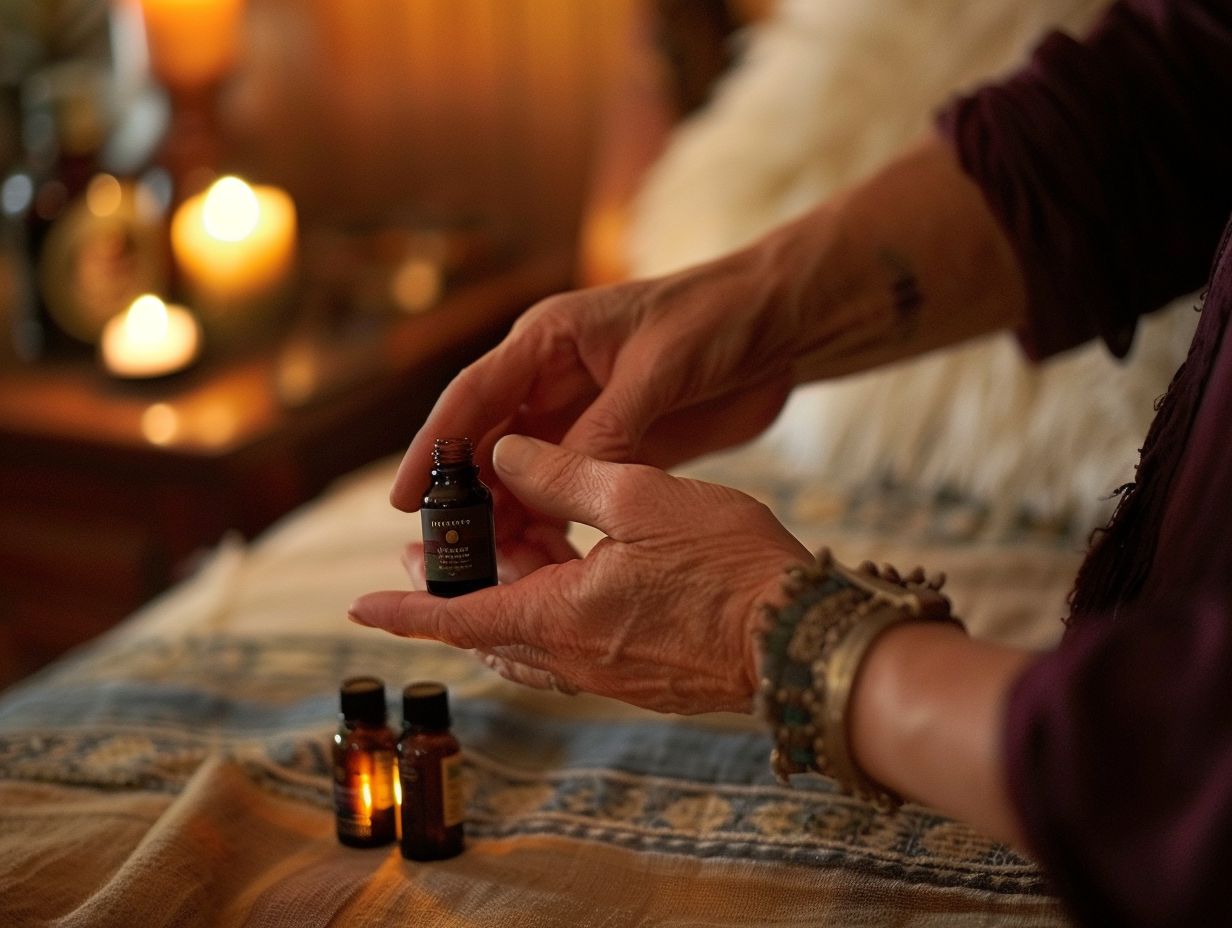
Regulatory considerations are important to ensure that essential oils are used in compliance with safety standards. These regulations cover aspects such as proper dilution, recommended usage methods, and understanding contraindications for specific individuals.
The advantages of aromatherapy include promoting relaxation, reducing stress levels, improving mood, aiding sleep, and even boosting cognitive function. Essential oils can be powerful tools in supporting emotional and physical well-being.
Individualized responses to essential oils are essential since people may react differently to various oils. It’s crucial to start with patch testing, gradually introducing new oils, and observing any adverse reactions to tailor the use for each person’s unique needs. Is young living essential oils safe?
Frequently Asked Questions
Is it safe to wear essential oils on my skin?
Yes, it is generally considered safe to wear essential oils on your skin. However, it is important to properly dilute the oils and do a patch test first to ensure your skin does not have any adverse reactions.
Can essential oils cause skin irritation?
Yes, some essential oils can cause skin irritation or allergic reactions. It is important to dilute the oils and do a patch test to determine if you are sensitive to a particular oil before applying it to a larger area.
Can essential oils be worn directly on the skin?
No, it is not recommended to wear essential oils directly on the skin as they are highly concentrated and can cause skin irritation. It is best to dilute them with a carrier oil before applying to the skin.
Are there any essential oils that should not be worn topically?
Yes, there are some essential oils that should not be worn topically, such as cinnamon, clove, and oregano. These oils are known to be skin irritants and can cause burning or redness.
Can essential oils be worn during pregnancy?
It is generally recommended to avoid wearing essential oils during pregnancy, especially during the first trimester. Some oils may have contraindications for pregnant women and it is best to consult with a healthcare professional before use.
Are essential oils safe for children to wear?
It is important to use caution when using essential oils on children. Some oils may be too strong for their sensitive skin and it is best to consult with a pediatrician before using them. It is also recommended to dilute essential oils for use on children.

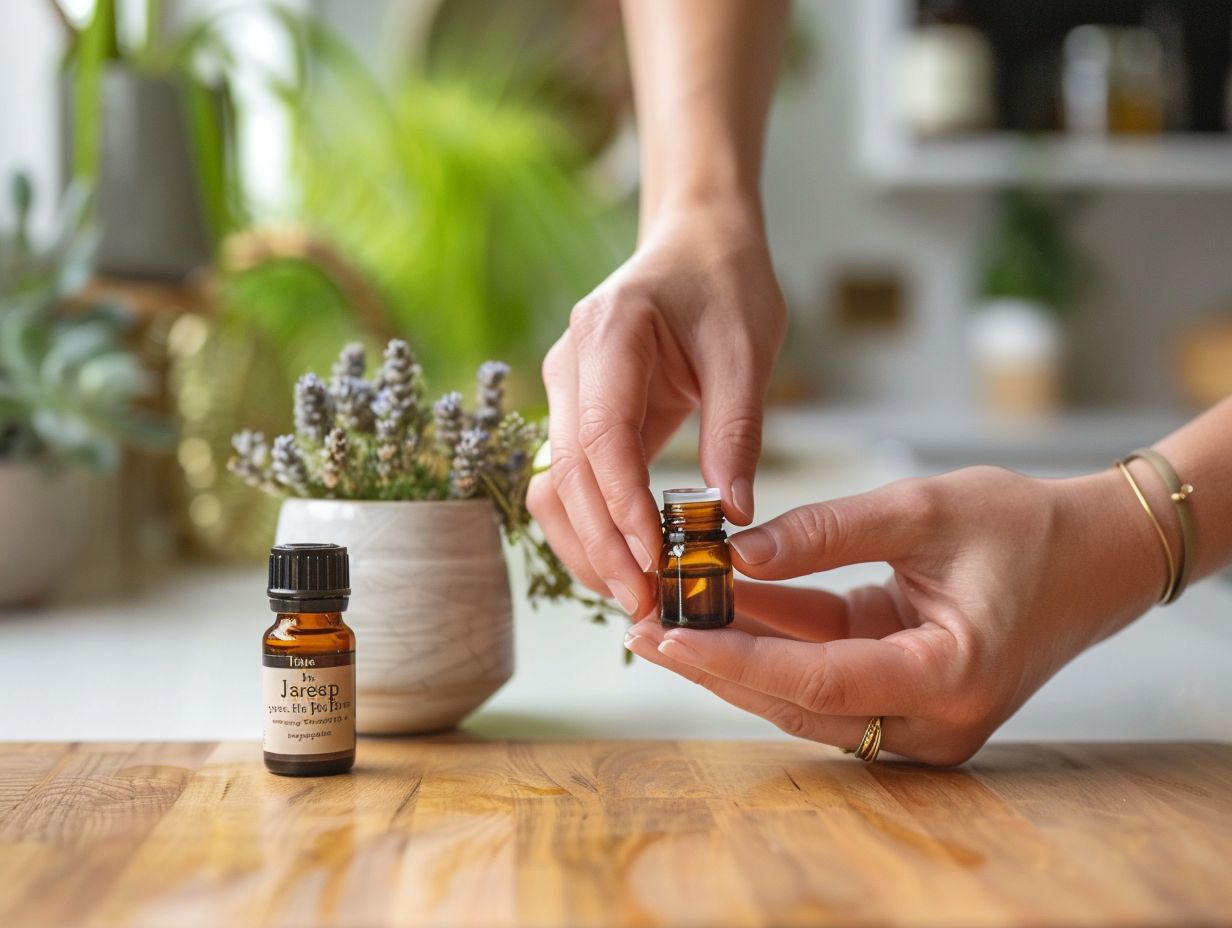
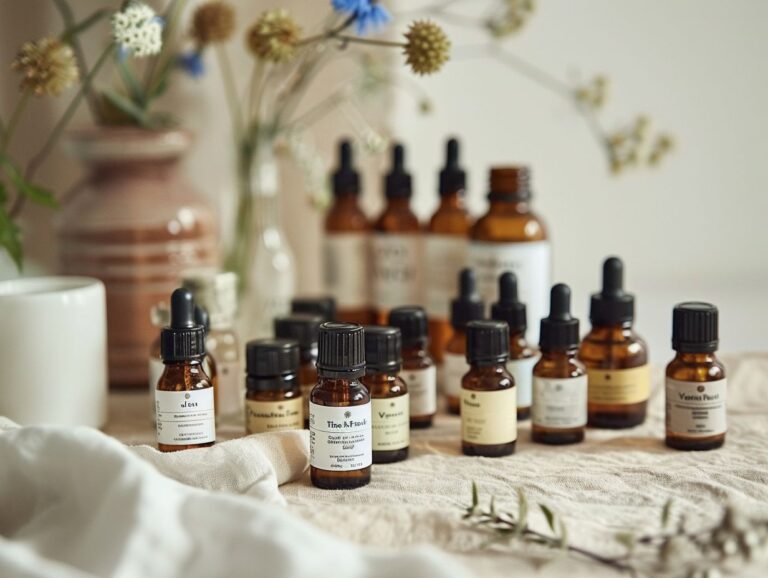
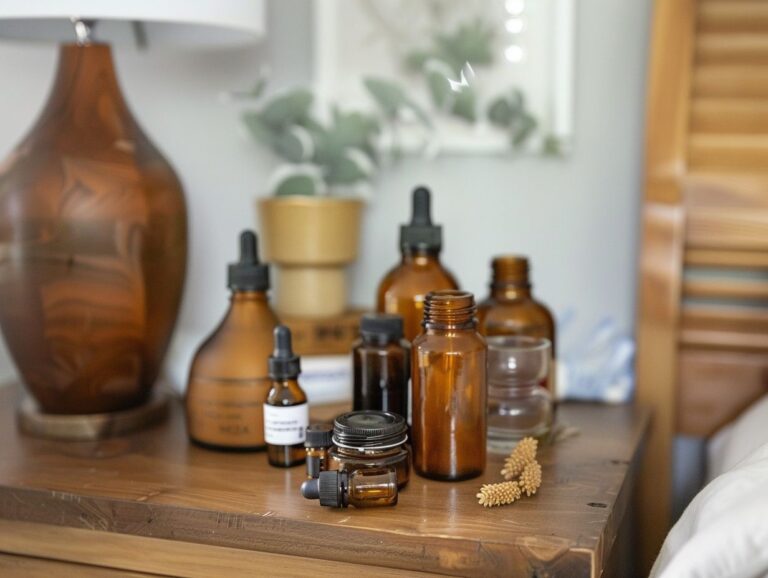
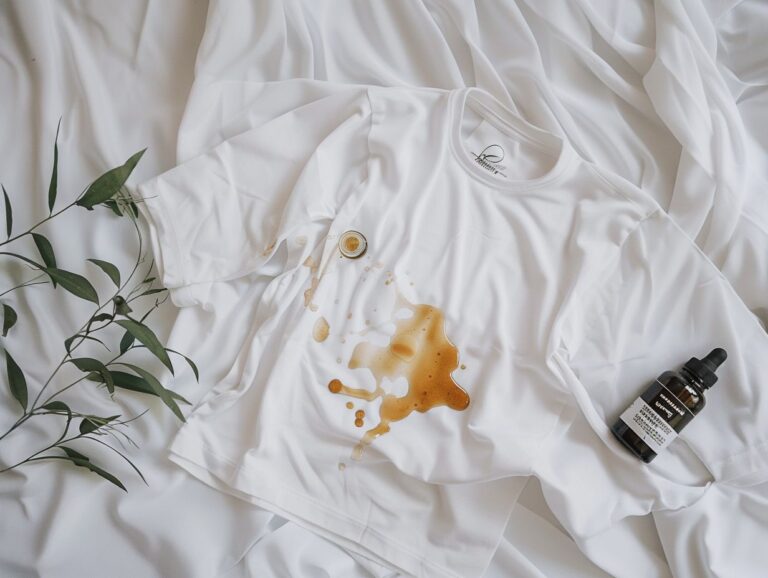


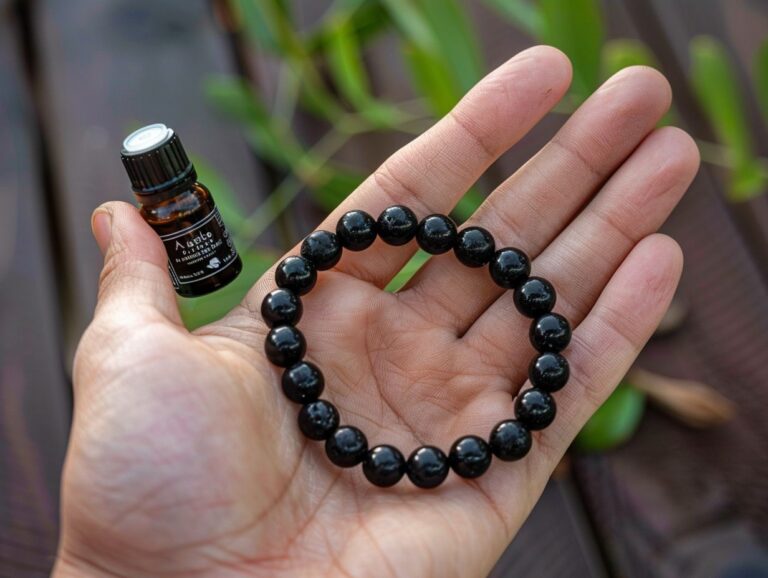
2 Comments